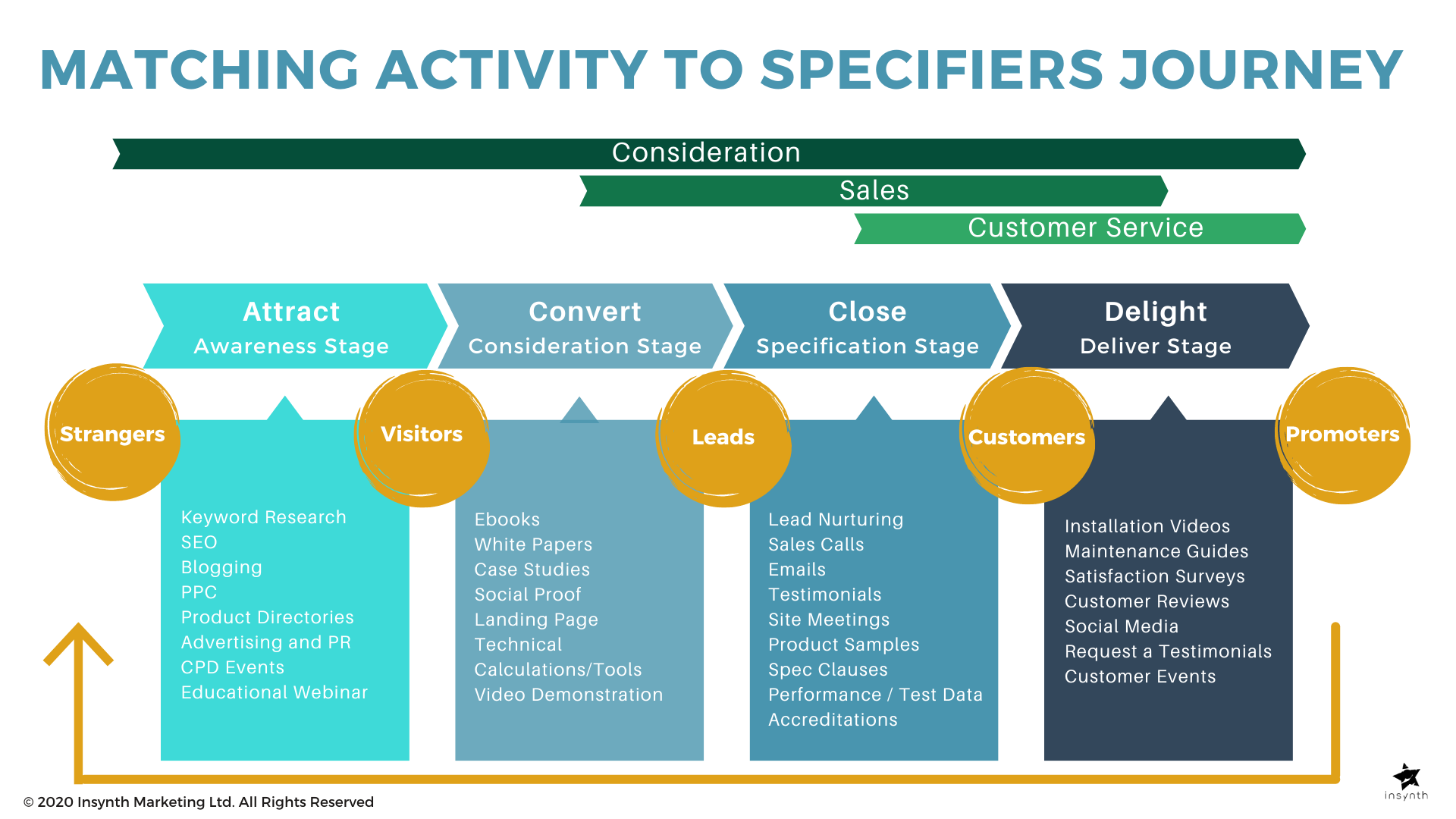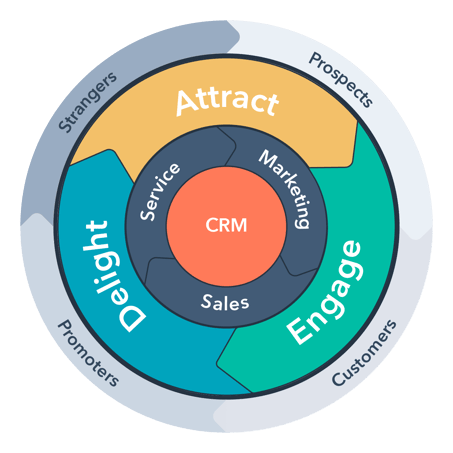6 min read
10 Reasons Your Growing Building Product Business Needs A CRM
![]() Ainhoa Rodriguez-Muguruza
:
10-Mar-2023 11:52:05
Ainhoa Rodriguez-Muguruza
:
10-Mar-2023 11:52:05

Managing contact and client information might seem simple in the early stages of the development of a company. An Excel spreadsheet is comfortable enough and, even if some members of your team struggle to find documents in the endless loops of folders within folders that you have on your shared server, there is no need to panic. Yet, as your company expands, you bring on more clients, and you recruit more staff, and… panic.
Before you know it, contact information becomes scattered over spreadsheets, sticky notes, and a quick mental note that you made when “John-Something from Something Development Homes called about… was it 50 aluminium frames or was it 500?”. And, do not get me wrong… Feeling that your business is growing is fantastic, but it might require a little bit more organisation that you might have expected at first. And that is what a CRM can help you with!
What is a CRM?
There is no shame in asking. A CRM, or customer relationship management solution, is any type of software that may assist you in storing data on client and prospect contacts. Depending on your requirements, this software can extend to support you with contracts, projects, support enquiries, etc. as well as with your marketing activity, giving your company a thorough understanding of a client's activity and comments, marketing and sales touchpoints.
A CRM should give you answers to some of the questions that you might have already asked yourself about your business.
- Should I be storing customer and prospect information on individual and associated records?
- Is it sustainable for my data to be stored in several locations?
- How can I achieve for the exercise of handling my data to be less tricky?
- Is my team being held up by the need to hop between several locations in order to get lead or customer data?
- How often am I communicating with my customers?
- Should I look into a more accurate method to assess the output of my sales team other than the deals that they are closing?
If these feel familiar, keep reading about how this can change when implementing a CRM.
10 Elements your Building Product Business could Benefit from if they Implemented a CRM
In 2021, 1 out of every 5 construction leaders believed they would benefit from having more access to real-time information, particularly through faster data flows. And, in 2023, this is no longer a belief, but a clear reality!
When it comes to CRMs, there is no size fits all and, most often than note, you will require for a customisable and adaptable solution for your growing business. This might seem like a challenge, but the potential benefits might encourage you to consider implementing a modern, cloud-based, and fully optimised CRM in your business.
#1 Improve the Organisation of Your Data
It might seem a silly thing but a CRM aids in the organization of data on all of your contacts.
A good CRM will allow you store records and associate them, having full control over the activities that your contacts might be undertaking with your company, regardless of whether these are open project, closed projects, support enquiries, technical enquiries, or partners. This knowledge helps your team work together and allows your team to keep track of who a client has spoken to and what topics they have covered.
Some CRMs also offer the possibility of connecting and cleaning customer data automatically, curating datasets and allowing you to use AI to control data quality.
#2 Deepen Your Understanding on Your Sales Performance
With growing companies and growing teams, it is often that companies lose control a bit over their sales data.
The right CRM should allow you to monitor your team's progress toward quotas and KPIs like emails sent, calls made, meetings scheduled, and transactions closed, etc. to see what they are doing well and where they can improve. If designed with sales-capabilities in mind, a CRM can also include time-saving tools, for yourself and for your team, that allow you to automate repetitive tasks and your team to move prospects through the pipeline faster.
#3 Start Basing Your Forecast on Accurate Reporting
If during the first years of your business you relied on spreadsheets, it is likely that forecasting is also powered through that software. And that is ok… It is just not ideal.
A good CRM should be able to use your sales data to predict pipeline health, report on rep efficacy, and help you report on accurate metrics that you can present to the board or to different stakeholders. The main goal of having a CRM is time-saving and, for that, it is key that your CRM is capable of producing truthful reports that you can use to base your business decisions on.

#4 Segmenting Efficiently your Customer Database
To identify the most promising prospects to pursue, your CRM need to allow you segment your contacts according to factors such geography, deal size, closing date, and more.
Within the built environment, this is even more important. Target contacts are clearly defined by their different roles, including architects, specifiers, contractors, and designers. Not all specifiers look for the same and it is essential to understand their core challenges when designing first establishing that conversation with them. Through nurturing techniques, your CRM helps you to slowly engage and add value to those contacts, approaching them with the right message at the right time.
#5 Diversify the Channels Through Which Prospects can Reach You
The professionals described above are really busy, and a CRM should make the activity of reaching out to you easy, fast, and hassle free.
Details like keeping an active presence on social media, installing a live chat on your website, setting up a meeting link, all tools available on current CRMs, can make a huge difference, encouraging prospects to choose you over other competitors. Some CRMs will have tools to support you doing this, such as intuitive drag-and-drop editor, catchy pages and CTAs that will attract leads and encourage them to start a conversation with your brand.
#6 Ensure Outreach Consistency Within Your Company
To drive activities like the above, it is key that you and your team have a process to follow and that that process is documented within your CRM.
Documenting your sales process should not be a matter or “setting it and forgetting it”. Instead, your CRM data should allow you to identify both productive and inefficient tendencies in your sales habits and ensure you have the necessary tools to successfully follow up every lead that enters your pipeline through sales enablement tools. These can look differently depending on your CRM, but should encourage for different elements of your processes to be standardized and implemented.
#7 Enable Your Sales Team with the Right Tools
When earlier we said that growing teams can often lose sight of the right data, that does not only affect directors and stakeholders… It is possible that your sales reps feel disoriented!
Think about it… There is simply too much going on. They are trying to do too many things at the same time, ending up spending over a third of their day doing bookkeeping and admin tasks that have no real sales value. By transferring the upkeep of notes, playbooks, tasks, and reminders to your CRM, you can significantly speed up your salespeople’s daily activities and keep them organized.
As a result, your sales representatives will devote more time to producing leads.
#8 Empower a More Successful Handover Between Teams
Needless to say, if teams can struggle with their own data, growing businesses often experience a total disconnect between teams.
- 1 out of every 4 of businesses describe their sales and marketing as either “misaligned” or “rarely aligned”
- Half of marketers do not share an awareness of which assets their sales co-workers are most likely to use
- 60% pf marketers believe they understand what sales require from them, but 30% of salespeople agree that marketers get that right!
If your CRM also integrates with the marketing and customer service departments, this misalignment is automatically solved. The right CRM enables better collaboration and communication between sales and marketing teams and encourage them to support each other.
#9 Keep Safely Growing Your Business
All in all, these benefits allow for steady, consistent, and sustainable growth, that can be predicted and closely monitored thanks to automated and accurate reporting available through a CRM.
The right CRM will be able to provide deeper insights into your marketing performance, and even tie your campaigns back to sales, giving you that elusive ROI figure! Your CRM should process the data to give you actionable information and enable you to better recognise what channels and mediums are working for you, what is impacting conversions and what activity is driving high-quality leads. That way, you can spend less time putting together reports and more time growing your business.
#10 Collect Feedback and Leverage Your Prospect’s Opinions
Any growth leveraged through the CRM should be, ultimately, be feed back into the CRM, ensuring that we are collecting useful feedback.
Your CRM should offer optimised features such as custom feedback surveys and give you the possibility to create, from scratch, a bespoke feedback survey for your clients so that can gather the information that you can use to keep growing the business into the right direction.

Is HubSpot the Right CRM for You?
HubSpot is the only CRM designed following the principles of inbound marketing. The inbound methodology was a rather novel approach to approaching customers when Insynth initially offered it to the UK built environment. With its integrated approach to marketing, sales, and operations, inbound marketing helped businesses increase brand recognition and, as a result, their visibility.
By concentrating on acquiring, engaging, and delighting your audience, inbound marketing frames growth inside a flywheel paradigm that transforms leverage accurate data to help you grow. The design of your website, your SEO plan, your paid advertising, your social media, and your PR all need to be completely in sync for the flywheel to function, and that unifying element is your customised and carefully curated CRM.
If you are looking at adopting inbound, it is important for you to know that you do not need to do this alone. Having the support of an inbound-specialised construction marketing agency can make a great difference! inbound might seem straight-forward, almost driven by common sense but, if not done properly, it could lead to resources being wasted. An agency that asserts itself as an inbound agency will support you through this journey, with analysis and measurement present at every step in the process.
About Insynth
At Insynth we deliver a predictable flow of leads, customers, and specifications for building product brands through our inbound marketing approach, proven to reach a technically demanding audience.
We use the latest marketing techniques such as construction inbound marketing, to equip building product companies to grow sustainability in this era of digital transformation.
As the only HubSpot certified agency to major in construction marketing. We have a proven formula of bringing a variety of functionalities together including CRM Implementation, Web Design, Sales Automation, SEO, and Email Marketing to achieve your ultimate aim: Growing your business and gaining new specifiers and customers.

